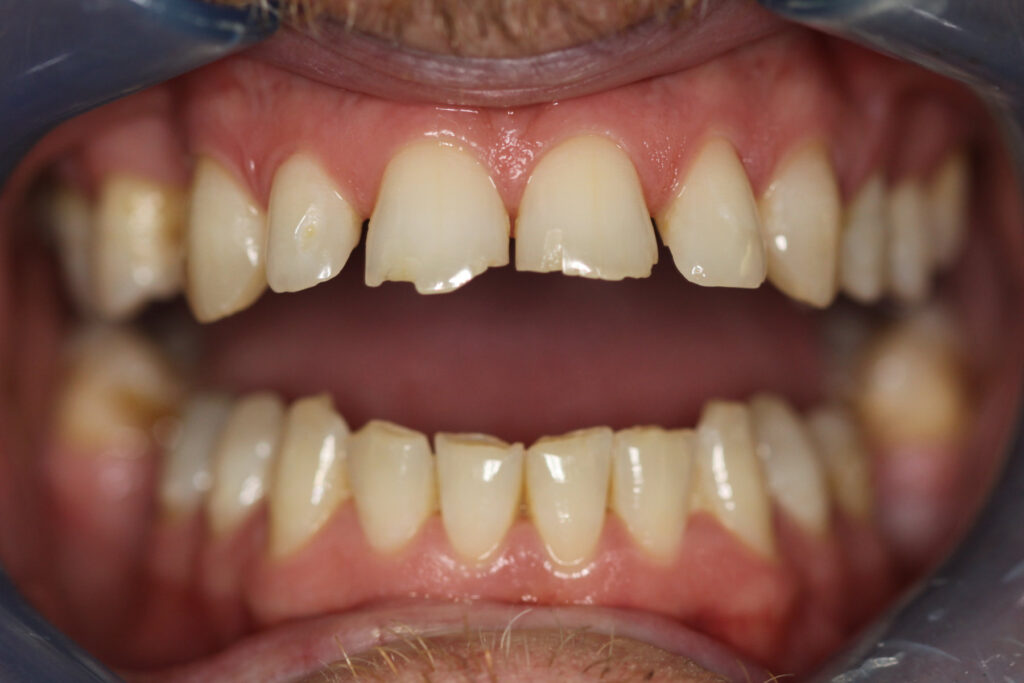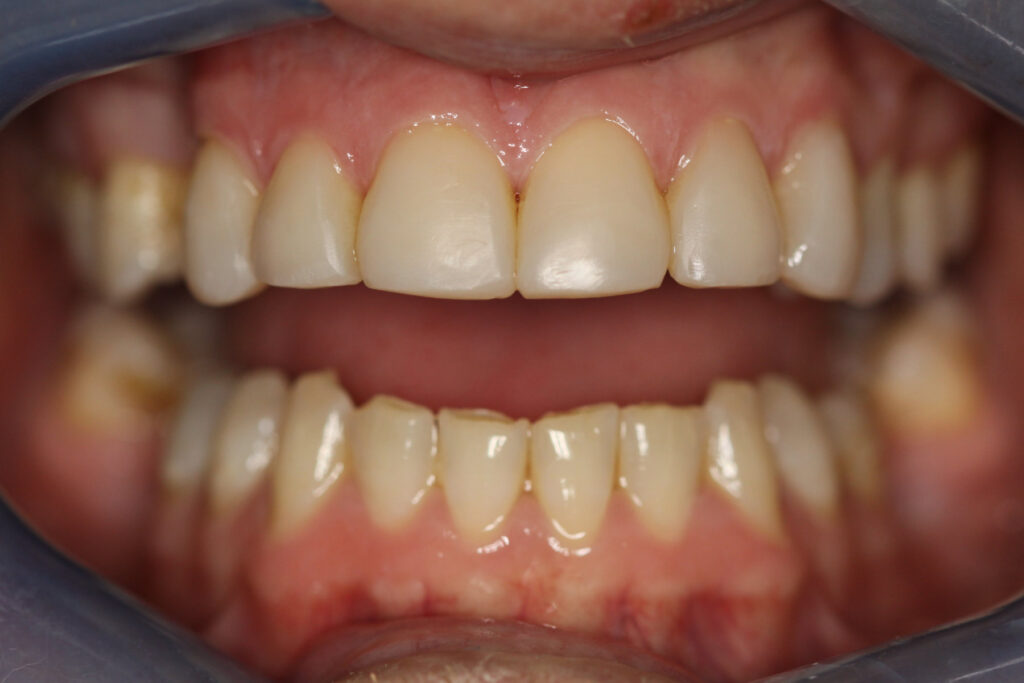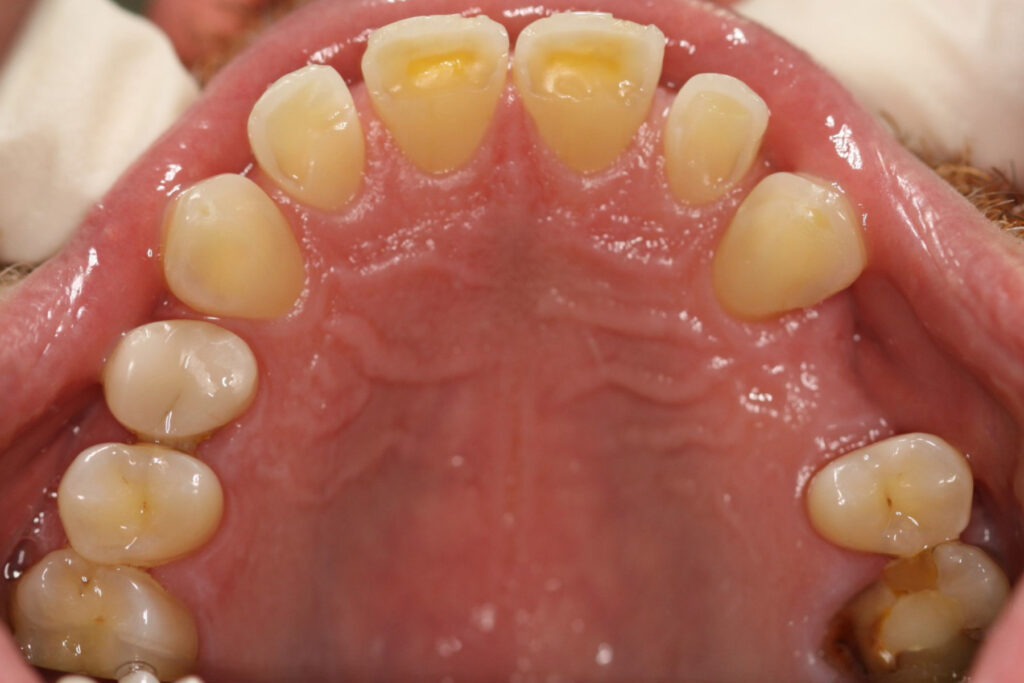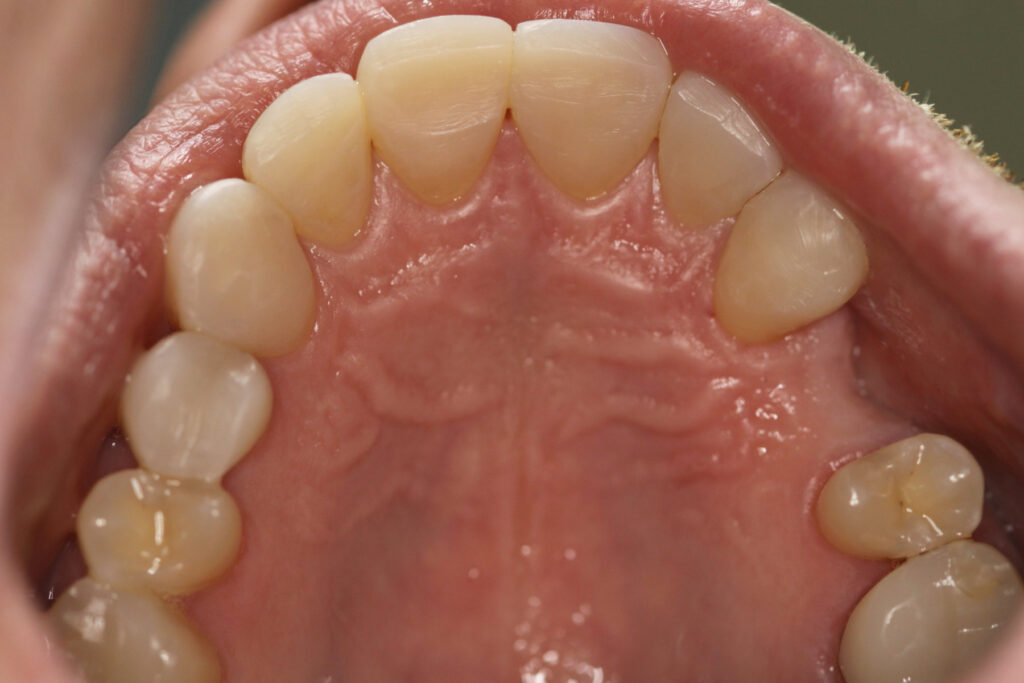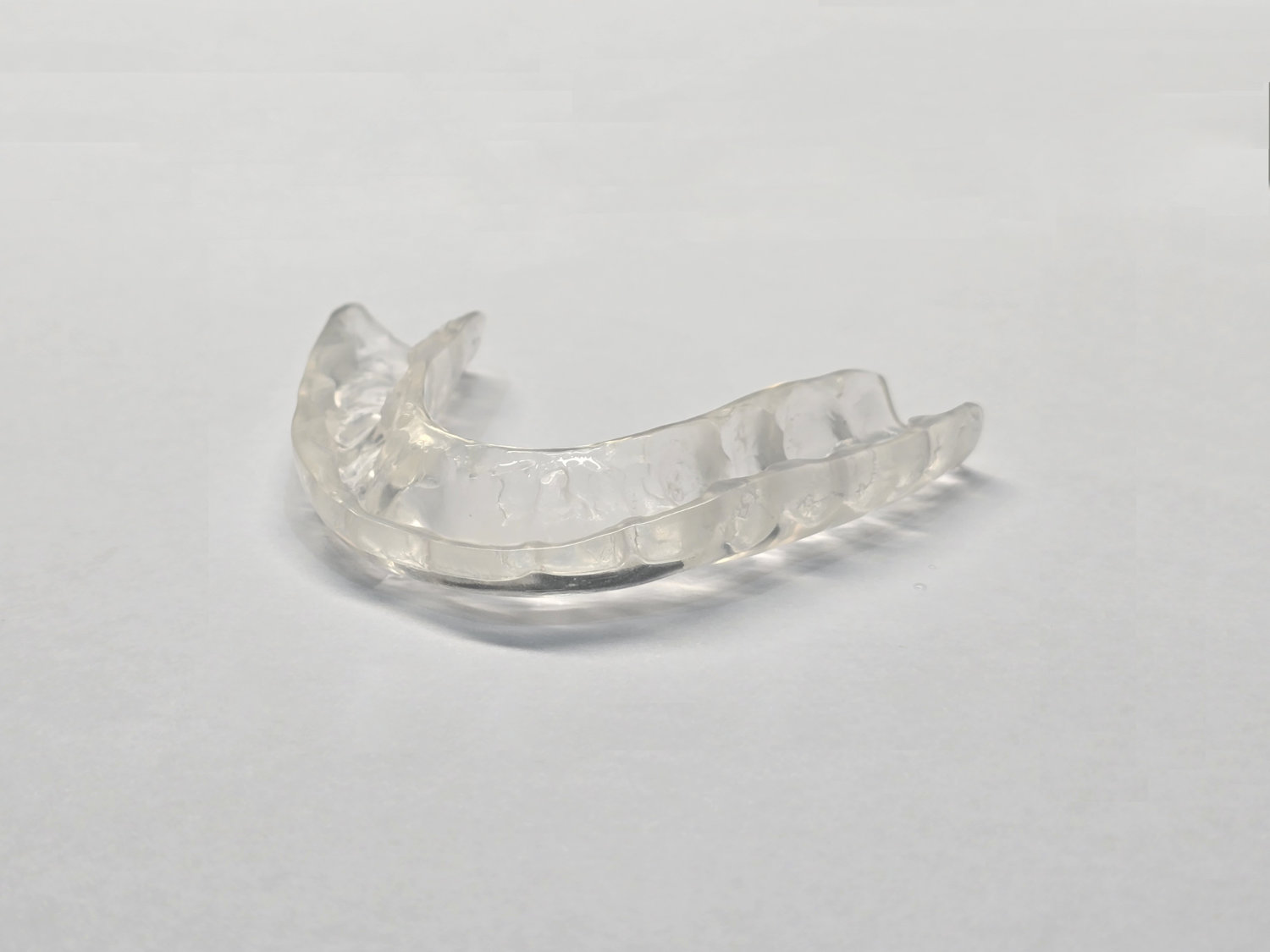
Bruxism related issues
TMJ/Grinding
Bruxism is commonly known as grinding and/or clenching of the jaw. It is a common dental condition characterised by the habitual, involuntary grinding or clenching of the teeth, often occurring during sleep. It involves the forceful rubbing or gnashing of the upper and lower teeth against each other. This condition can also manifest as a conscious, daytime habit.
One of the most common and effective treatments is the use of occlusal splints (night guards). These are custom-made dental appliances that are worn over the teeth during sleep. Night guards create a physical barrier between the upper and lower teeth, preventing them from grinding against each other and minimising the potential for damage.
Another treatment option we offer is neuromodulator injections. Neuromodulator injections can be used to relax the muscles involved in bruxism. By injecting the correct dose into the jaw muscles, it may help alleviate jaw tension and pain associated with bruxism.
In cases of severe wear and damage to the teeth, extensive restorative work can be performed to rebuild the teeth and bite (occlusal rehabilitation).
Signs and symptoms
- Tooth wear and fractures: Bruxism can lead to the gradual wearing down of tooth surfaces, affecting the enamel and potentially exposing the inner layers of the tooth. It can also lead to the sudden fracture of teeth.
- Jaw Pain and Tension: Chronic bruxism can cause discomfort or pain in the muscles (Masseter and Temporalis) and temperomandibular joint (TMJ). The TMJ can develop a click and limited movement, while the muscles can develop an injury.
- Headaches: Bruxism may contribute to frequent headaches, particularly in the temples.

